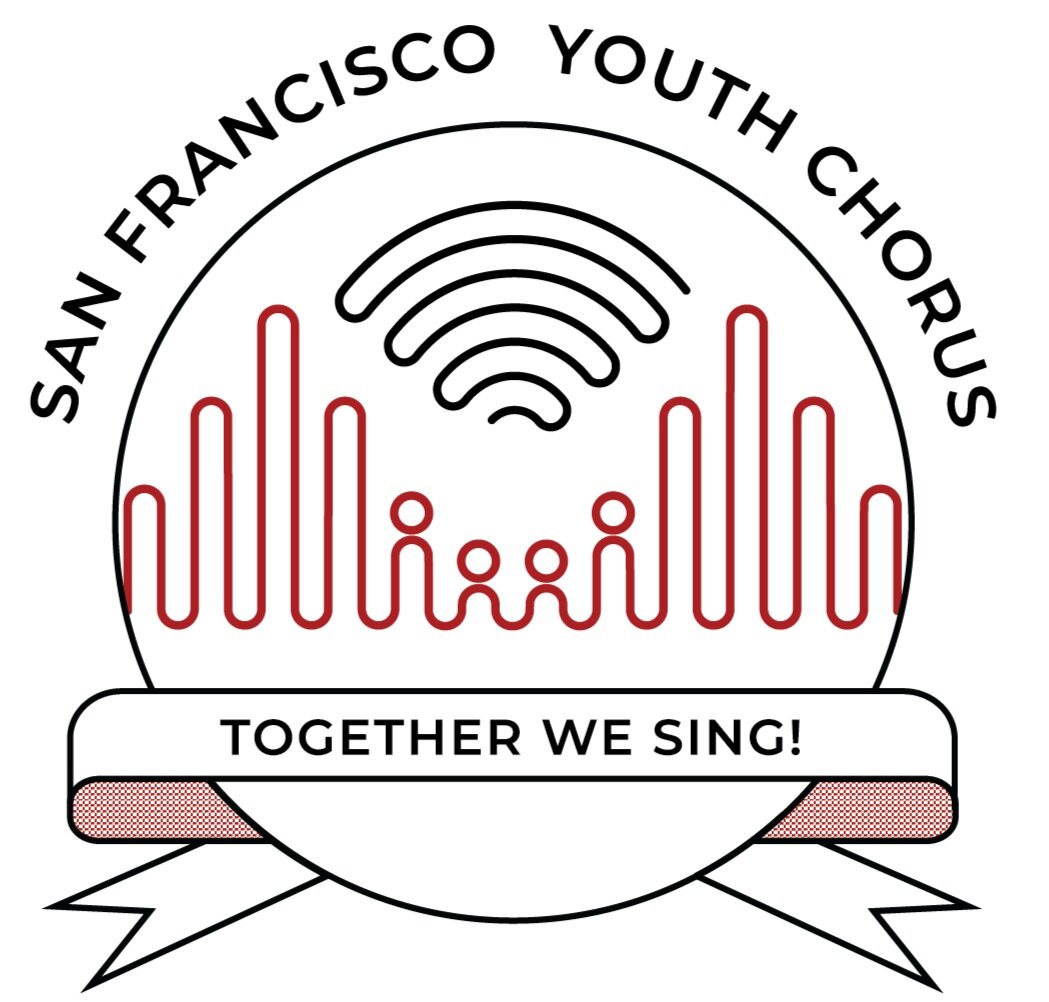TRAINING DEPARTMENT CURRICULUM
VOCAL SKILL DEVELOPMENT:
Respiration
encouraging correct singing posture that allows the breathing muscles to engage properly during singing, and encourages alertness throughout the rehearsal and performance process
engage and use abdominal muscles and other breathing muscles for support
implement the natural cycle of inhalation/exhalation
connect the breath to a phrase of music--the foundation of a legato line
teach the relationship between breath and musical phrasing
physical freedom and release of muscular tension in singing
Phonation
learn to differentiate between vocal sounds, upper registration and lower registration
produce a healthy sound in both the upper and lower registration and start the gradual process of blending the two together
Resonant Tone Production
develop the awareness and skill of clear, resonant, and accurate singing
develop technique in healthfully projecting the voice
develop uniform vowel pronunciation in singing
sing with a relaxed jaw and open throat
Expression
develop an emotional connection to the music
develop confidence in the rehearsal and performance setting
develop an appreciation for a variety of songs
sing expressively through use of dynamics and tempo
MUSIC THEORY OBJECTIVES FOR PRIMA CHORUS (PRE-K & KG)
Explore and experience ‘comparatives’ (loud and soft, fast and slow, high and low)
Learn to feel a steady beat and to discern the difference between rhythms (“the way the words go”) and the underlying steady pulse.
Focus on singing in tune by matching the teacher, the piano, or another instrument, or another student
Sing a major scale in solfege syllables, with handsigns
Recognize, read, write and perform simple rhythmic patterns using eighth, quarter, half notes and rests
Recognize basic symbols in music
Repeat signs
Linking phrase contour to melody
Stepping, skipping and leaping sounds
Long and short sound durations
Concept of lines and spaces
Take a basic theory test at the conclusion of each singing semester
PERFORMANCE OBJECTIVES FOR PRIMA (PRE-K & KG)
Develop good choral singing habits: follow the conductor’s beat and cutoffs
Singing a large repertoire of unison songs or canons
Learn a large group of folk and composed songs with different tonal relationships
Learn songs which implement movement, particularly encouraging beat and rhythmic awareness
Learn songs which incorporate improvisation and individual creativity
Prepare concert songs for performance, to be memorized and sung at a high standard
Gain experience and confidence performing by participating in all SFYC concert opportunities:
full chorus concerts in December and May
outreach concerts to retirement homes and convalescent hospitals
Attend chorus summer camp
Pass a basic performance assessment at the conclusion of the singing semester
MUSIC THEORY OBJECTIVES FOR SCHERZO (GRADES 1-2)
Differentiate between major and minor tonalities
Differentiate between duple and triple meter
Recognize, read, write and perform simple rhythmic patterns using eighth, quarter, half notes, whole notes, eighth, quarter, half and whole note rests
Begin to work with intervals, M2, M3, P4, P5
Sing basic melodies using Do, Re, Mi, Fa and Sol
Sing patterns and exercises from notes on a staff, using solfege
Learn basic time signatures, 2/4, 3/4, 4/4
Learn to track their part through a musical score
Expand sensitivity to dynamics and apply these concepts within performance:
crescendo and diminuendo
ritardando
forte, fortissimo, piano and pianissimo
legato, staccato
Take a basic theory test at the end of each singing semester
PERFORMANCE OBJECTIVES FOR SCHERZO CHORUS (GRADES 1-2)
Develop skills in intonation and vocal independence through unison songs, partner songs simple 2-part songs and canons
Differentiate between the melody and a high harmony part (descant) or a lower harmony part (alto)
Continuing learning to follow a director, specifically:
staying together as an ensemble
following changes in dynamics
Accuracy in entrances and cut-offs
Learn an internationally diverse body of repertoire, to develop an understanding of other cultures and languages
Gain experience and confidence performing by participating in all SFYC concert opportunities:
full chorus concerts in December and May
outreach concerts to retirement homes and convalescent hospitals
Attend chorus summer camp
Pass a basic performance assessment at the conclusion of each singing semester
